Progression Betting

Want to have a way to recover losses after a losing streak that will work 99 times out of 100? (We’ve got a gratis spreadsheet for you – how to get it further down in the post)
One of the comments to the L&B blog post recently – got me to thinking about writing a short post on progressions – again. Several years back I wrote an article on progression betting that is still available over on the Horse Racing Gold main site.
Generally, I avoid such articles because there are problem gamblers out there, and I just don’t want to encourage that type. But – here goes anyway – with this warning: If you sense any of that in you – that desire to lose control and to risk more than you have to lose, or more than you have set aside for risk ventures . . . then it would be best if you just don’t read this post. I’m very serious here.
Progressions are riskier than flat betting – period.
But then – we have chosen a game of risk have we not? So the thought occurs – why not set up a progression that courts losing streaks, and will – when they occur – actually gain more profits than if they hadn’t happened.
What?!
Read MoreThe L&B Method

The new L&B Method:
What we’ve got: A new method that will be profitable for you – no matter who you are.
.
What you’ll get: A method that is simplicity itself – but whose foundation is as solid as it gets. The factors used are the most crucial to the outcome of a race, and we have tweaked them to a fine degree of dependability, yet it will take you only 3 minutes to handicap the average race.
.
What you need to do: Order – go over the material – do a few practice races, then – start cashing tickets (more than half your win bets, and with an ROI that will astound!)
.
AND – We are offering a guarantee that has never before been offered in the history of racing, and that statement itself is guaranteed (and will explain the lobster graphic!), Read on . . .
Read More
Potential To Win

By looking at what a horse has done in recent races, and using that as a major factor in our betting decisions – we set ourselves up to make one of the most serious, yet most common mistakes we can possibly make as race players.
The discussion in the last post touched on this – the concept that most handicappers latch onto the most obvious and most recent data to ‘anchor’ their handicapping and decision-making. But unfortunately for our long-term bottom-line, the obvious is, well . . . obvious!
Which means it’s obvious to all the other handicappers and bettors out there – which means that information will be over-used and therefore over-bet – which then assures us of a steady stream of underlays if we are also making that info a major factor in our handicapping.
Certainly we are not oracles, and we don’t have crystal balls, and therefore must use what we do have; the published past performance data, our own collected data (the handicapping of our personal results), the visual appearance of the horse, and the money flow on the toteboard – as input factors for our handicapping and betting decisions.
But the main point here is that the astute handicapper needs to look for POTENTIAL.
How do we go about this – looking for potential?
Read More
Short Term – Long Term

Memory: Does the way our brains function serve to sabotage our efforts at handicapping and betting the races?
Since not many play this game at a consistently profitable level, what could be a reason for that? We all have almost identical brains, and after everything is said and done , and all the variations accounted for – we all have more or less the same potentials and capabilities.
It seems that the reason most fail to succeed to their hoped for levels of profit in this game – is a natural function of the brain itself. The way most of us actually think and remember is throwing a monster monkey wrench into the mix.
It’s a hurdle that can be overcome, but your betting success depends on identifying it, and making a concentrated effort to modify this natural tendency.
Read More
A Ramble

This post will be about – like the old Seinfeld series – nothing in particular . . . a ramble that may turn into a bit of a rant in parts – I’m not sure yet.
To start, Horse Racing Gold gets (along with the comments posted to the blog) a lot of write-in comments that never get posted – comments like (paraphrased);
– If I bet exactly as you say – will I get the same results, or is there subjectivity involved?
– If I use this method, can I make a good/decent income betting?
– I was doing so well at (name the track/s), but now at (name another track/s) I’m not doing very well with the same method
– But – I thought you said . . .
– I really need to make some money – which method should I use?
For our take on these – and more . . .
Read More
Pulling the Trigger

Betting decisions . . . when to – when not to.
How you decide whether or not to “pull the trigger” in any particular race may be the most important element in the entire process.
From the time you begin considering a race for betting (whether it be looking at the past performance data, or the tote board) to the time you cash, or tear up the ticket – the moment of decision making – the final commitment to risk – is the most critical.
Though this is the most important moment, it cannot be divorced from the process itself – i.e. everything leading up to, and following that moment.
Many players might assume that the handicapping is the crucial part of the process. But handicapping per se – identifying the most likely horse to win the race – can be a kind of trap.
There is an inherent difficulty in making long-term profits when your main factor for ultimately making a betting decision is based on how good the horse looks in the past performances. The pari-mutuel system itself makes sure of this. Others will see the same positive factors, also make their decisions based on those . . . and the odds go down to levels that are not returning a “fair” amount.
What then would be the ‘thing worth knowing’ that could set your decision making apart – that could make it “spot on?”
Read MoreCome Out Roll

How do you prevent handicapping and betting the races from being just a crap-shoot?
Several of you have commented in response to various posts that success at this game seems to be ever elusive. It comes for a while, then disappears as quickly as it came . . . something seems to work for a time, then it doesn’t. What gives?
Every single handicapper has had runs of successful wagering. This is proof that it isn’t that difficult to accomplish. The $64,000 question then becomes – “How do I maintain the advantage – how do I keep it from slipping back . . . in fact – how do I continue to increase profits over time, and prevent p*ssing them away during negative streaks?“
As I commented to one of the posters recently, the main way is to be sharper than the next guy in your handicapping and betting – which kind of goes without saying.
But beyond that and perhaps even more important: There are two correlatives I think are so key to the game that success cannot be had without their mastery . . .
Read More
What If?

One of racing’s great refrains – and usually used as a way of justification or lamenting of a betting loss. But re-evaluating our moves, choices, and decisions in this game can be very constructive to our future success. In that light – I offer the following . . .
Did any of you happen to watch (or see the results of) the Risen Star Stakes yesterday at Fairgrounds? Every bell and whistle in the state went off when that $272.40 winner crossed the line!
I was watching the race for Ky Derby purposes and didn’t have a bet going. I’d just before the race gotten off the phone with a subscriber where I had been answering some questions on “Speed 2013” – I had the thought to check the race in hindsight, and see if that winner could have been caught with the method.
Without giving away the method to those who haven’t purchased . . . but for those of you that do have the method – what follows is my thinking and the results of the application of the method to that race:
Read MoreHandicapping – Fountain of Youth?

Can handicapping keep your brain young?
There is a lot of new evidence out there that indicate that in fact it could not only keep your brain functioning at a higher capacity, but can even help regenerate new brain cells and brain cell connections – and turn your mental clock around.
Now, I know not all of you are of the age that you might yet have even considered this, but if you aren’t there yet – you will be.
It has been discovered that in most people brain functioning begins to fade from optimal somewhere during their mid-thirties. We are born with some 100 billion brain cells (I wonder who counted them?!) with a quadrillion of these connections – neurons and their synapses. And one of the keys to keeping the brain young – to prevent the dying off of these cells and their connectors – is to continually challenge the brain with new problem solving situations.
What could fit the bill better than handicapping a horse race?
Every race is different – the challenge remains ever-new. There has even been recent research that certain aspects of using the computer will help increase cognitive functions and mental dexterity.
Read More
Speed 2013

A serious question:
In general, do you think early speed is more – or less – important than it was – say, twenty or thirty years ago?
Many of the current handicapping pundits and “gurus” like to point out that – since the “crowd” most easily sees and analyzes early speed, those horses are then over-bet and therefore offer little value.
They suggest instead looking at late running horses because the average prices are higher for those types.
Okay – that is likely an accurate evaluation – BUT – and it is a very important “BUT” . . .
– what is the percentage of late running horses that win races versus the percentage of early running horses that win races?
To hit a 12-1 shot that comes from the back of the pack to catch them at the wire is exciting and memorable, but it’s not so exciting when that same type then lose 13 in a row for you – just missing on many occasions while the early running horses are coming in race after race.
*Important point: when I talk about early running horses, I am not limiting to the “front runners” only. I include any horse that will be able to place itself in a striking position relative to the pace that is likely to be set by the actual front runner in today’s race.
The advantages of being in the first flight (or close) in a race, and to be within striking distance at all points of the race into the stretch– are obvious. These advantages have been discussed at length by many handicapping writers, and I’m sure you are already aware of them . . .
A Mug’s Game?
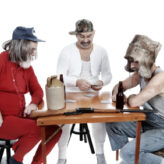
Is horse race betting a “mug’s game?” Does a player really have a shot at making a success of it, or is it just the old ‘snowball up a hill’ thing?
Maybe the better question in our current economic climate would be . . . is the goal of financial security in any form a mug’s game?
The sad truth is that what our Grandparents paid $20 for in 1913 – we have to cough up $467.31 for today! What my parents paid $20 for in 1948 (the year I was born) – I’ve got to pay $191.96 for today. The estimates are that the dollar has lost 95% to 98% of its value since the 1913 to 1920 period.
That kind of puts the question of ‘saving’ and ‘earning’ for the future in a different light doesn’t it? The goal of earning and saving part of those earnings is to have more at a future time – right? But the reality of wealth loss (though it is actually being confiscated by others, so lets call it what it is – wealth transfer) via the declining value of our currency sort of turns the whole thing into a mug’s game.
Okay – okay – bit of a rant there – apologies. And, of course, there are ways to counter the inexorable decline of the purchasing power of the dollar – but that’s a conversation for another day. So back to the question at hand – success at the races . . .
Read MoreClaiming Gold!
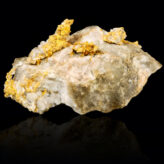
Read on below to find out about our new method offering – Claiming Gold!
Being successful at the race track, i.e. betting the ponies, is kind of like trying to walk a straight line taking heel-to-toe steps with the added pressure of a police officer watching (some of you older players might remember having to take that pre-breathalyzer test a time or two during your misspent youth!?).
How so?
Well – it’s easy to get “drunk” on all the information out there – then to get off balance by giving too much weight to some factors, and not enough to others. And – there is always the constant ‘pressure’ of friends, racing buddies, and family (read – wife or husband!) watching and judging.
It is tempting to just throw up ones hands and either quit, or turn the whole handicapping process over to the latest software that does all the “thinking” for you. It’s easy to say, “Hey, there are so many factors to consider, and I just don’t have the time to consider all of them for every race – I’ll let the computer do all of that for me.”
But horse players were making money at this game a hundred years before computers. How did they do it?
. . . Basics.
Read More
Speed Ratings

Speed ratings – class ratings – par times, and the various combinations, permutaions, and comparisons of these cause a lot of confusion in the game today.
Each time we offer a method that has as one of its factors the comparison of horses’ speed ratings, or Beyer figures, or Racing Post numbers – there have been questions.
And those questions are valid.
There has been a proliferation of companies who offer their own version of a “rating” for each race in a horses’ history. Players, once committed to a particular one of these services, are reticent to switch, and do the tough job of re-researching how their handicapping decisions might have been different (for better or worse) if one of the ‘other’ outfit’s ratings had been used.
I’m not going to profess to know all the subtle differences, or try to establish a pecking order for the various services (it’s very likely I am not even aware of some of the ratings services out there). Neither will I explain the mechanics behind getting the figures. Books have been written on this, and if you want to pursue it – it is a fascinating subject.
In this post I will simply give a few thoughts on this issue, and also provide a chart I found online that will help those of you who have asked ratings-related questions of us recently. This is in particular response to those who asked those questions in regards to the new freebie method we gave out – “Marquee Race Method.”
Read More
Aim High

What’s the worst that could happen?
Many believe in this approach to life – and to horse racing. I also did in an earlier time of my own life. As we look around us today – almost everywhere (except maybe in Big Banking and Big Wall Street) we see lowering returns to our expectations.
Technological innovation remains the hope for a fuller and more fulfilling future, but somehow it has not, and is not living up to its promise. Belts are tightening here at home as well as across the globe. People are very concerned, people are worried . . . some are afraid.
For nearly a century, the “American Dream” was the ‘aim high’ goal for our ancestors, and for the throngs of immigrants that flooded into the country. Some did achieve relative greatness – some always will – no matter the time or place.
However, that Dream of America seems to be fading fast, and is achieved by fewer and fewer. There are over 40 million U.S. citizens now on food stamps, 10’s of thousands have lost, or are in imminent danger of losing their homes because of greed, the so-called “fiscal cliff” rapidly approaches . . . and forgive me if you are of a different view, but I think Tuesday’s election results only serve to make the mess even more problematic.
So how does all this relate to betting the ponies?
Read More
The Greatest Race Day

I want to tell you the story of the most incredible day of racing I’ve ever experienced.
It was the kind of day that, even if I lived and breathed horse racing for another thirty-five years (as I have for the last thirty-five), I will never see the likes of again.
In 1986, I was living in the small village of La Purisima, Baja California – Mexico. Chance had brought me there (a long story for another day), but I was comfortably lost and incommunicado in a desert canyon two hours north of the city of Insurgentes deep in the central desert of Baja, and intended to stay that way for the indeterminate future.
I lived in a one-room palapa. It was a palm-thatch covered open-air patio, but mine had been ‘improved’ and was enclosed – kind of. There were two large windows that held no glass or screens, and a single doorway with no door. This permitted entrance to all sorts of creatures that then shared the palapa with me; bats at night, scorpions by day and night, a small, sleek, black snake that lived in the palm thatch and (I justified to myself) helped keep the cute little kangaroo rats at an acceptable minimum, an occasional tarantula (they are really fairly harmless), and a host of other critters I won’t list. It was really just like camping out, except I couldn’t see the stars at night.
Somewhat more pleasant as visitors were the three or four short, sun-wrinkled old women who showed up each morning with fresh, warm tortillas and local fruit. They were my neighbors, and though they were kind and beautiful little folk, their real reason for being there was nothing more than uncontrollable curiosity about the ‘gringo’ who had mysteriously shown up in their midst.
‘Chapulina’ (little grasshopper?!) was the oldest, and appeared to be their ring leader. The others were somewhat shy, but not this old crone. After a brief few days at the start of my long stay (an initial ‘sizing-up’ period I guess), she began coming over at any time of day – and ‘day’ for them began at the crack of dawn. She would walk right in – no knocking – I could be sleeping, reading, eating – no matter, and brazenly, yet casually pick through my stuff. By the end of the first week, she knew more about the small inventory of personal gear I had there than I did.
But – on to the horse race part of the story . . .
Read More
“Odds and Ends”

You will quite often here players say something like this, “I never bet on a horse going off at less than 3/1″ (or plug in whatever odds you want). Maybe you’ve said something like that, and believe that statement (or similar) can be made as an overall, all-inclusive, pronouncement.
In today’s game of consistently small fields at many of the tracks, some adjusting of thinking might be needed.
The basic thought here is this: are odds of, say, 5/2 the same value in a 5-6 horse field as in a 10-14 horse field? – “Well, heck yeah – it pays the same in both races, right?!” (I can hear someone say).
Yes – but to my way of thinking, a 5/2 shot in a 6 horse field might be a very good value bet that I’ll make, whereas if my top choice is off at 5/2 in a full field, it is simply far less attractive, and I will most often go elsewhere (using my second or third choices).
Why is it that a player feels (or should feel – and rightly so) that lower odds are generally to be avoided?
Read More
Blue Moon Longshots

It sure is nice to hit a very high paying horse isn’t it?! Nothing quite like it and, of course, that keeps players searching for more – hoping for more – sometimes even praying for more!
But how often do those boxcar win payoffs actually come in? Not very often – everyone knows that. A player can go broke very quickly if playing nothing but longshots.
Naturally – lady luck can be a factor. A player could hit something very good once or twice early in the life of his bankroll – and fund his ‘chasing’ wagers for several weeks and months before the odds probabilities catch back up to him.
Then there is the factor of handicapping for longshots. They happen – yes – but there are usually several long odds horses in every race. How in the world does a player deduce a set of viable variables that will point out the one high odds horse among several that might have a slight possibility of winning the race?
It’s a tough nut to crack. To find out how tough, and to learn a super simple step that will point out the winner of a race 87.5 percent of the time . . .
Read More
The Class-Drop Factor

Sometimes we tend to overlook the obvious.
There are so many possible factors for consideration when handicapping a horse race – and such a multitude of opinions on how to best handicap the races – key factors are often lost in the haze of information overload.
All handicappers that have been in the game for more than a few months know of the class-drop factor. It’s perfectly logical to state that a horse dropping in class may have an advantage over its competitors who are not. Like the advantage a ‘big league’ baseball team would have over a double-A league team. Easy to grasp the concept, but so obvious that it is often overlooked, or under-valued in relation to other more ‘esoteric’ factors to be considered in a race.
The game revolves around money – in every regard. Connections suddenly willing to acknowledge their horse is worth less money than it was last time it raced are giving a signal that, in general, says one of two things;
– “We’re now seriously after the purse winnings in today’s race,” or
– “There’s problems with this horse and we want to get rid of it (even so – often while also trying to grab one last purse).
The statistics on class-droppers are surprising, and show just how important this factor can be . . .
Read More
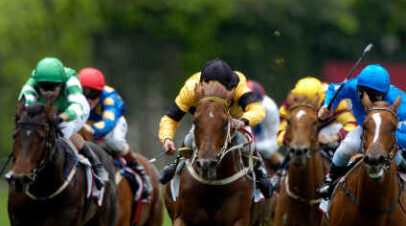
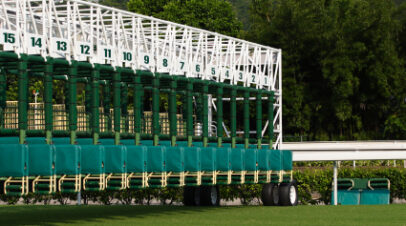

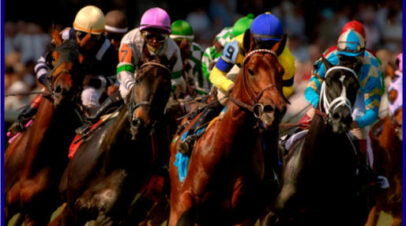
Recent Client Feedback